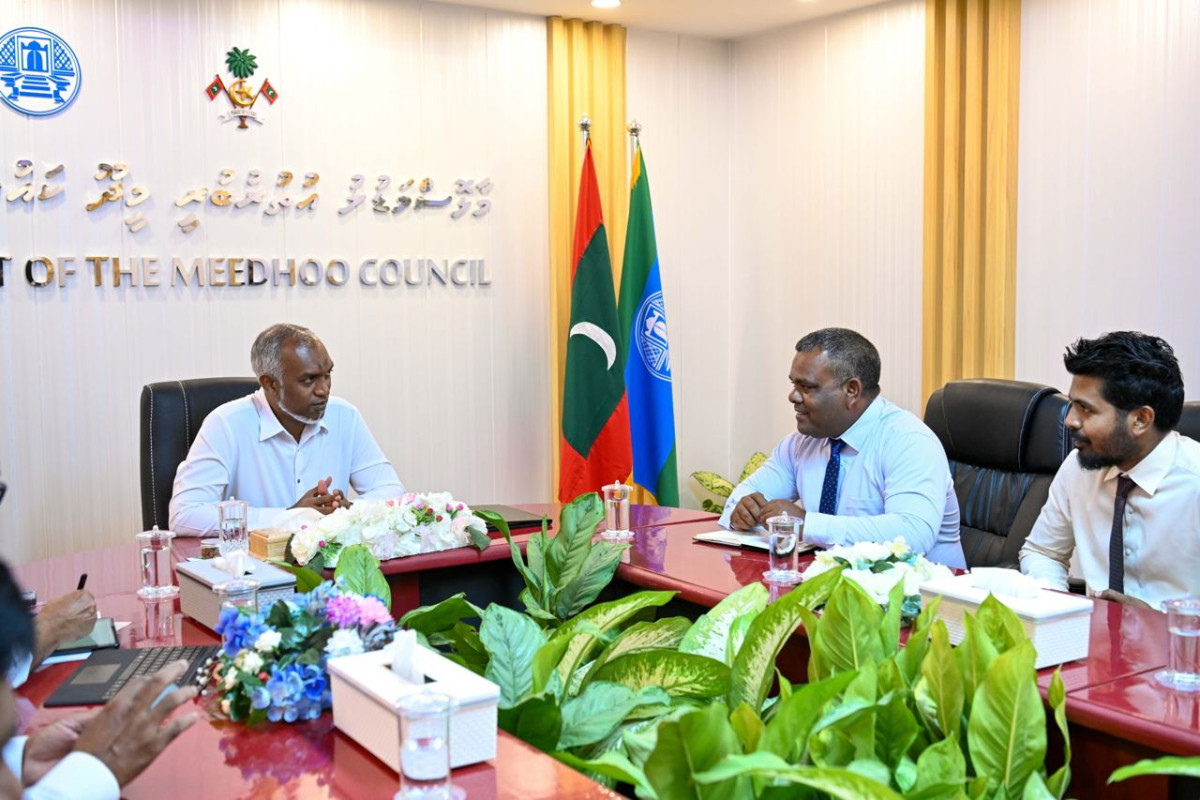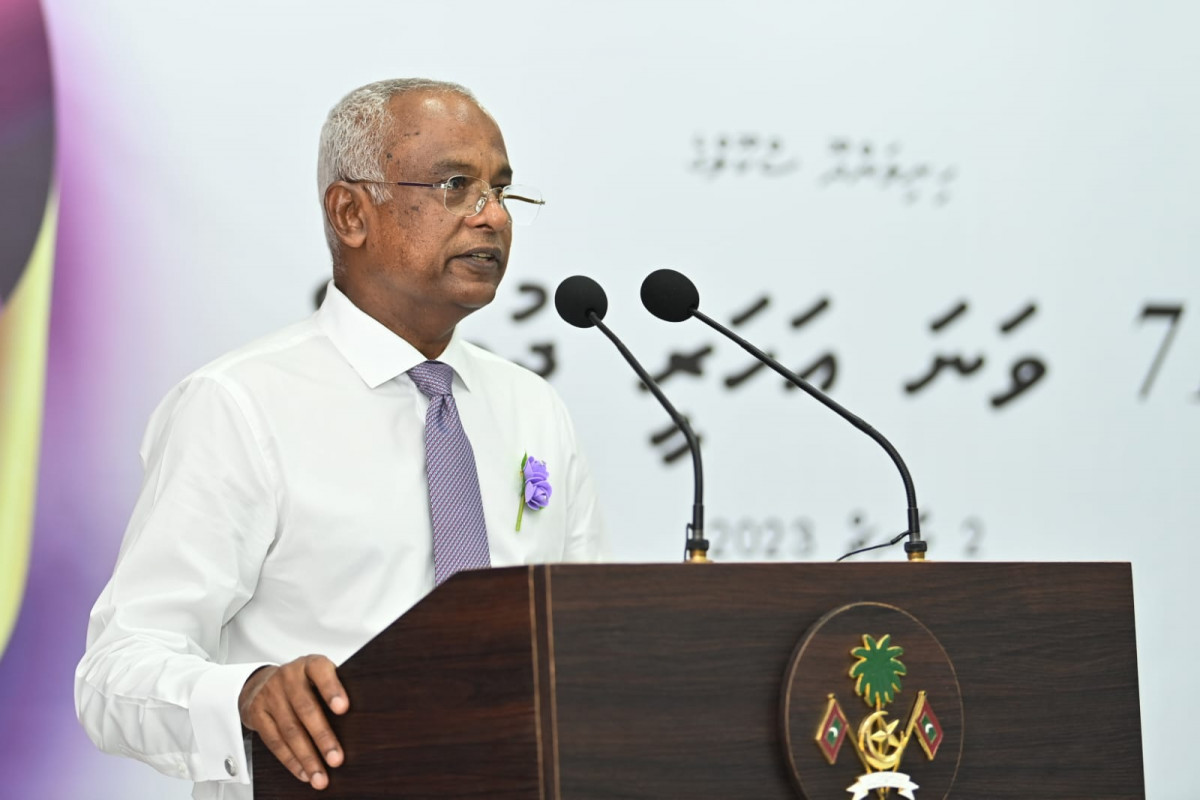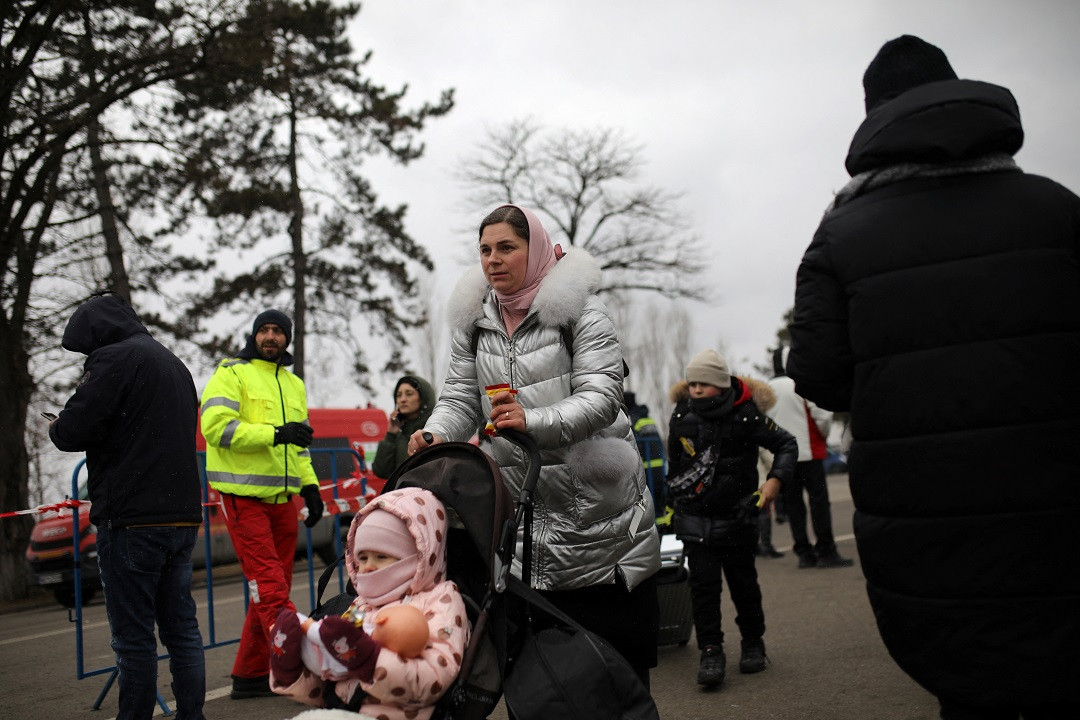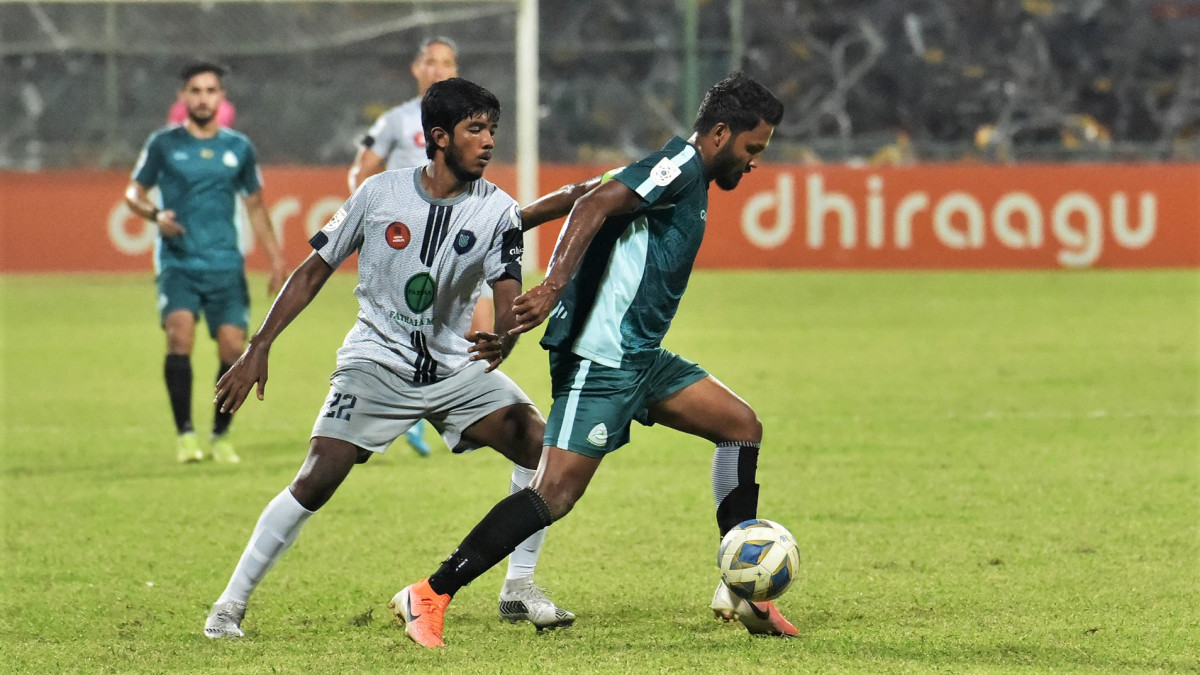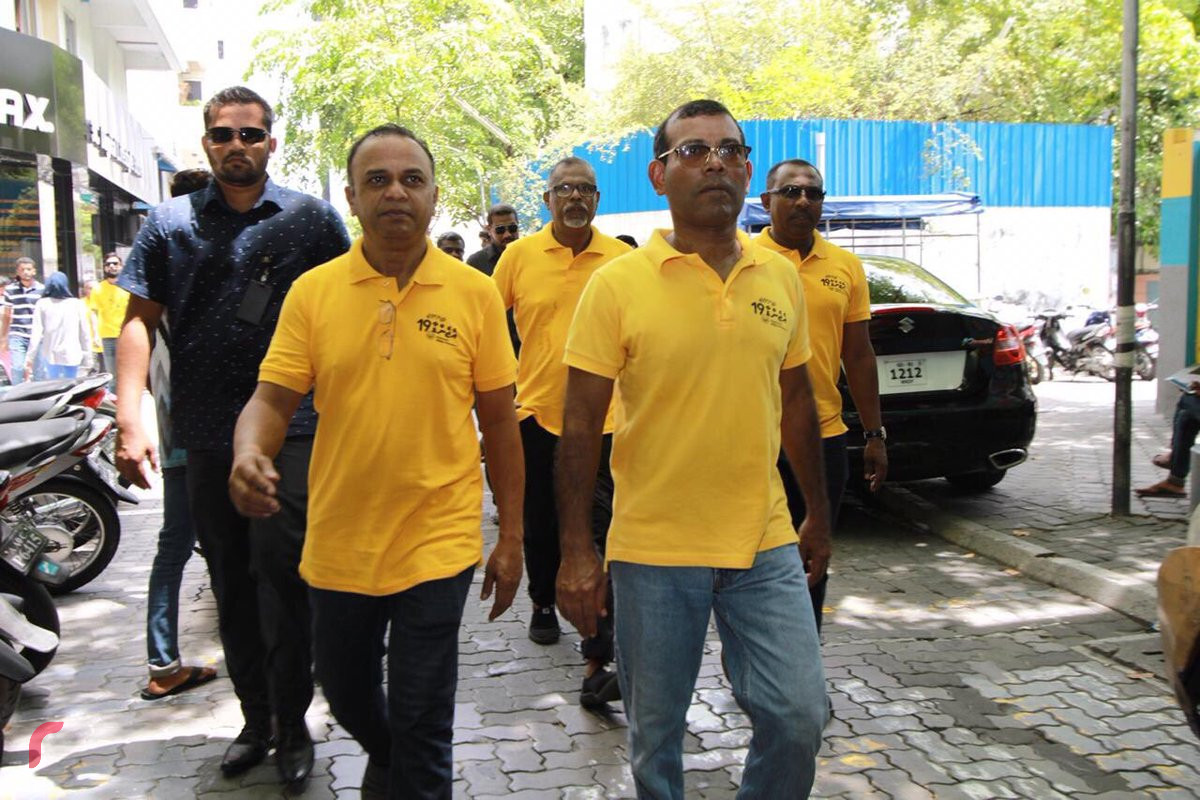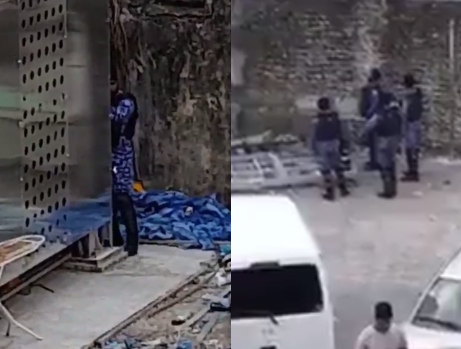Pres. Muizzu blocks Mayor Rafeeq from speaking at Fuvahmulah public meeting
The Muizzu administration shows a pattern of excluding opposition-aligned mayors and council leaders from speaking at public events while favoring ruling coalition officials

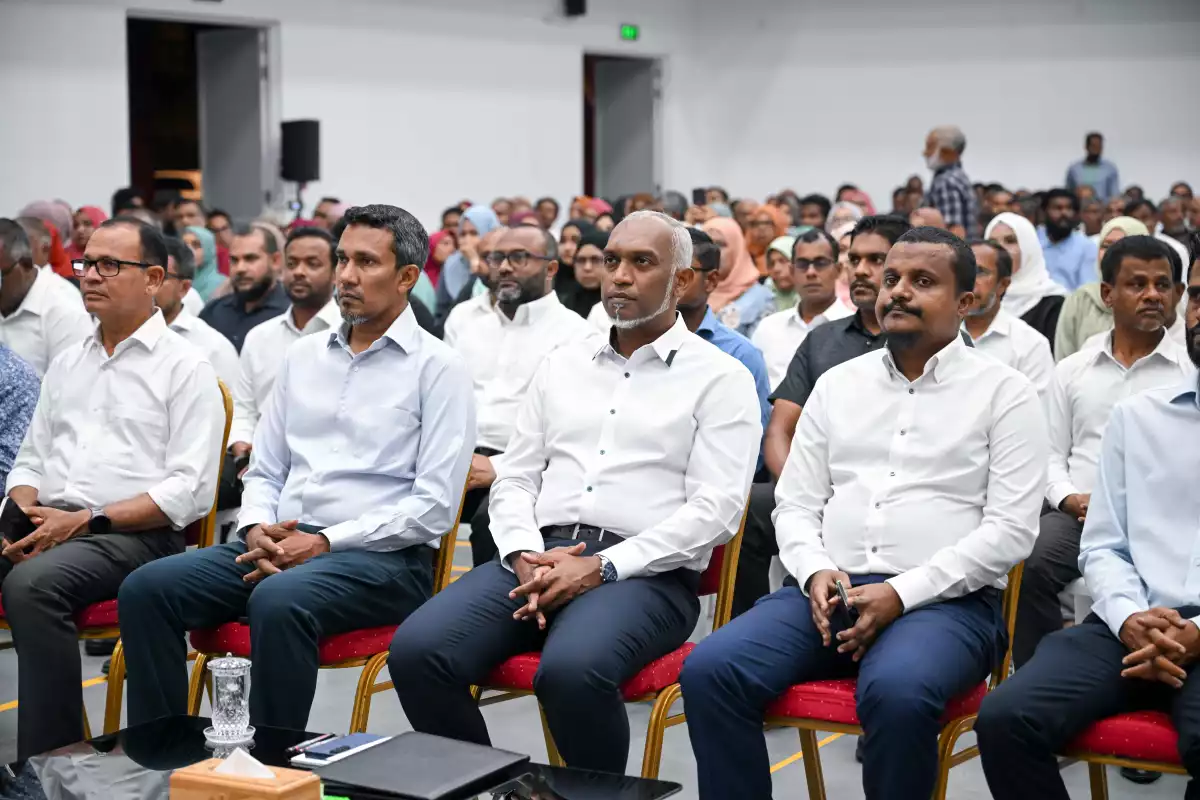
Mayor of Fuvahmulah City Ismail Rafeeq with President Dr. Mohamed Muizzu
President Dr. Mohamed Muizzu abruptly canceled Mayor Ismail Rafeeq’s opportunity to speak at a public meeting during his visit to Fuvahmulah City, in yet another instance highlighting the administration’s selective engagement with local leaders.
Muizzu arrived in Fuvahmulah on Tuesday. He met with members of the City Council and the Women’s Development Committee (WDC) earlier in the day. On Tuesday evening, a public gathering was held for residents, attended by senior government officials and community representatives, including Mayor Rafeeq. Despite his attendance and initial inclusion in the meeting agenda, the mayor was denied the chance to address the audience after the speaking order was altered at the last moment, reportedly due to “time constraints.”
The event began with the signing of agreements for several government projects in Fuvahmulah, involving ministers and company executives. The speakers who did take the stage were Ibrahim Hussain, the PNC MP for South Fuvahmulah constituency; President Muizzu himself; and Ali Fazaad, the PNC MP for Central Fuvahmulah constituency. No local representative outside the ruling coalition was given the floor.
The incident adds to a growing pattern seen during Muizzu’s recent island visits, where mayors and council presidents aligned with the opposition have routinely been excluded from speaking opportunities. In contrast, government-aligned officials continue to enjoy privileged access at such events.
Council members across the country have voiced frustration over this selective treatment, citing the administration’s reluctance to engage with local leaders critical of its performance. They have also expressed concern over stalled development projects initiated under the previous government and the lack of tangible progress under the current administration, now nearing two years in office.
Further criticism has emerged over the president’s practice of canceling scheduled meetings with councils affiliated with the main opposition Maldivian Democratic Party (MDP).
These meetings, often included in official itineraries, are frequently dropped without explanation, reinforcing the perception of an increasingly partisan approach to governance and public dialogue.

